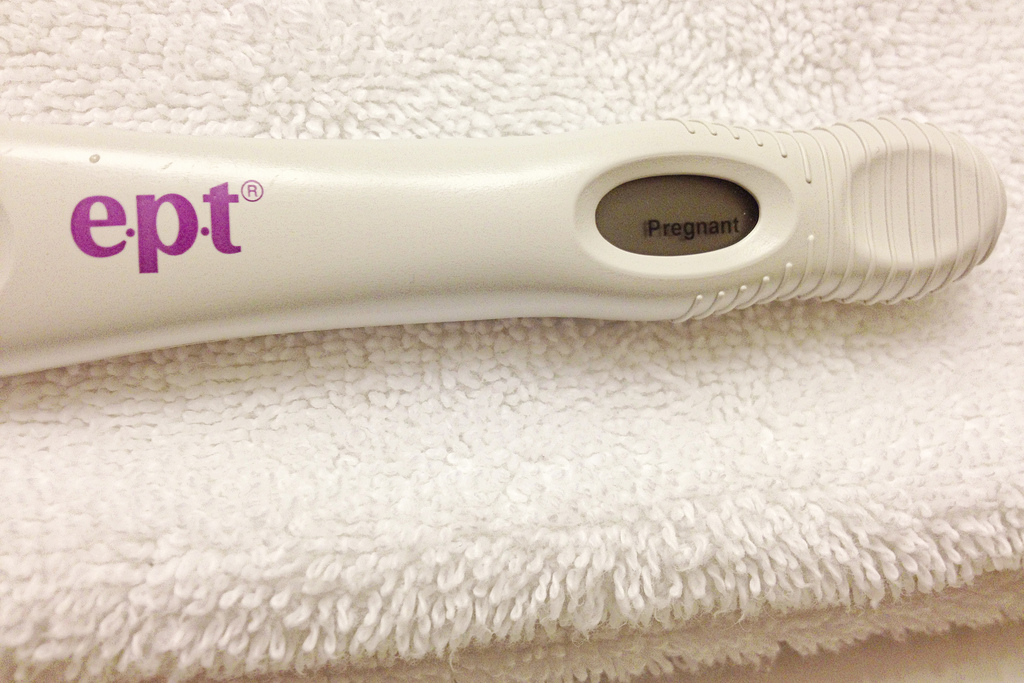Abdominal Pain in Early Pregnancy

Abdominal Pain in early pregnancy is one thing expectant mothers watch for closely. First-time mothers have a particularly hard time distinguishing dangerous aches and pains from regular pregnancy aches and pains.
For the sake of clarity, early pregnancy is defined here as the period from conception to the end of the first 12 weeks (three months) of pregnancy. This is also referred to as the first trimester.
Common causes of abdominal pain in early pregnancy include:
- Miscarriage
- Ectopic Pregnancy
- Urinary Tract Infection
- Acute Appendicitis
- Severe Constipation
- Pyelonephritis (kidney infection)
- Gallstone or Cholecystitis
- Ovarian Hyperstimulation Syndrome
- Gastritis
- Heartburn
- Hiatus Hernia
- Pancreatitis
- Kidney Stones
- Retroverted Uterus
- Ovarian Problems
First trimester abdominal pain is usually cause for concern. There are simple tests and scans healthcare professionals can administer to pregnant women to help exclude the possibility of miscarriage, infection, or preterm labor.
Abdominal radiography (abdominal X-ray)should be avoided during pregnancy
whenever possible. A 5 rad exposure in early pregnancy would increase the
chances for an unborn child to develop childhood cancer like leukemia by five
(5) times. There are situations, however, when the need for the mother to have
an X-ray or a CT scan surpasses the presumed risk of exposure. Suspected pneumonia, pneumothorax, perforated
abdominal viscus, and bowel obstruction are reasons that would necessitate an
abdominal x-ray in early pregnancy.
Common Causes of Abdominal Pain in Early Pregnancy
Miscarriage
Miscarriage is the involuntary termination of a
pregnancy before 20 weeks. Miscarriage presents as lower abdominal cramps,
often like a period or menstrual pain. Miscarriage pain is almost always
preceded or accompanied by or vaginal bleeding. These symptoms should be taken
very seriously, as they are evidence of
a gynecological emergency. Miscarriage accounts for 9 percent of all
maternal deaths.
Ectopic Pregnancy
A common cause of abdominal pain in pregnancy. Ectopic pregnancy occurs when the fertilized ovum gets implanted anywhere outside the womb or uterus, usually in the fallopian tubes or ovary. As the fetus grows, it stretches the wall of the containing structure, ruptures it, or even corrodes into a blood vessel, causing a leak or massive blood loss.
An ectopic pregnancy is a life-threatening condition for both the mother and the baby. Ectopic pregnancy usually causes some form of lower abdominal pain in pregnancy. As much as 2% of all pregnancies are ectopic. One of the dangers of an ectopic pregnancy is that many women who are ectopic may not even know they are pregnant until the abdominal pain begins. Bleeding may or may not be evident as ectopic pregnancies can cause internal bleeding.
Any
cause of severe lower abdominal pain in a woman of childbearing age warrants a pregnancy
test, even one that can be purchased from the local store.
Appendicitis in Pregnancy
Appendicitis can occur at any point during a pregnancy. During early pregnancy, appendicitis presents as a right lower abdominal pain. This pain may start around the umbilicus and move to the lower right abdomen. The expectant mother may also experience nausea, loss of appetite, and vomiting.
Feverishness is usually not a symptom of appendicitis in pregnancy. With appendicitis, the point of tenderness for the mother remains in the lower right abdominal quadrant even if the patient rolls over onto her left side. If the point of tenderness moves centrally or away from the right iliac fossa, then it is most likely that the tubes or uterus is the site of inflammation, which makes a diagnosis of appendicitis unlikely.
The risk of fetal loss is greatest in the first trimester of pregnancy. It is important expectant mothers seek the advice of their doctor anytime there is tenderness, pain, or bleeding during the early pregnancy.
The symptoms of appendicitis mirror those of an ectopic pregnancy, but a doctor will do an urgent ultrasound scan, and where necessary, a spiral CT scan of the abdomen.
Pyelonephritis, or severe UTI (urinary tract infection) can present like appendicitis too. A simple urine dip stick test and renal ultrasound scan will help determine whether the patient suffers from appendicitis or a urinary tract infection.
A diagnosis of appendicitis requires prompt surgical intervention, regardless of the state of the pregnancy, to ensure optimal outcome for both mother and fetus. Read more on appendicitis in pregnancy here.
Rupture or Torsion of an Ovarian Cyst
Torsion (twisting) of an ovarian cyst or the rupture
of an ovarian cyst can cause severe abdominal pain in early pregnancy. The pain
presents as a sudden, severe right or left lower abdominal pain, sometimes
accompanied by sweating, nausea and vomiting. An urgent ultrasound scan will
help to diagnose a torn or twisted ovarian cyst.
Urinary Tract Infection
Urinary tract infection is an infection in the urinary system that impacts the kidneys or bladder. UTI can occur at any stage of pregnancy, but is more common later in the pregnancy. Apart from the sensation of lower abdominal pain in early pregnancy, patient may also experience frequency of passing urine, or burning and pain in the urethra on passing urine.
A
patient can use one of several home urinary tract infection tests (affiliate link) to determine if the
pain and discomfort are the result of a urinary tract infection.






